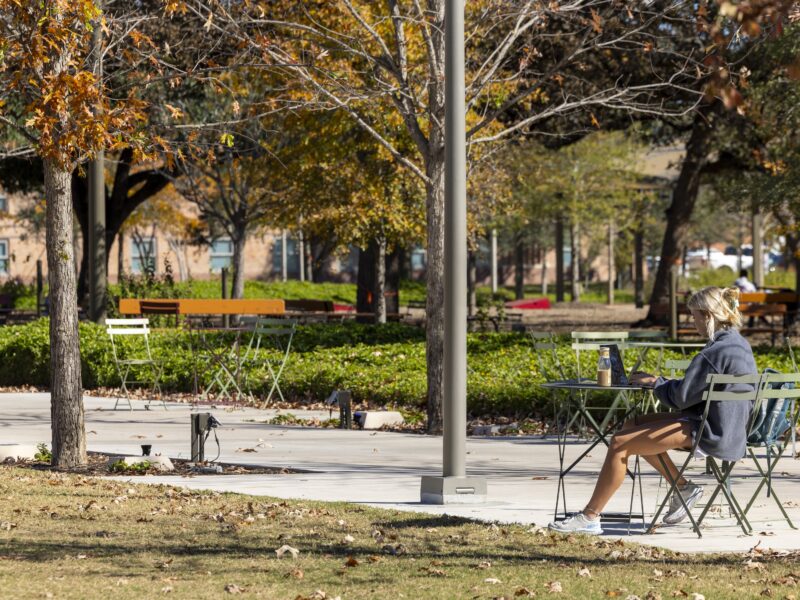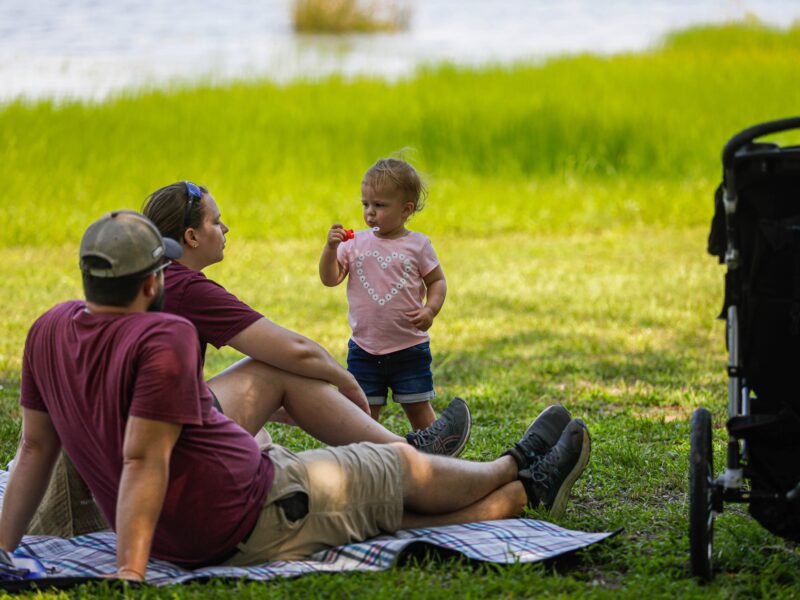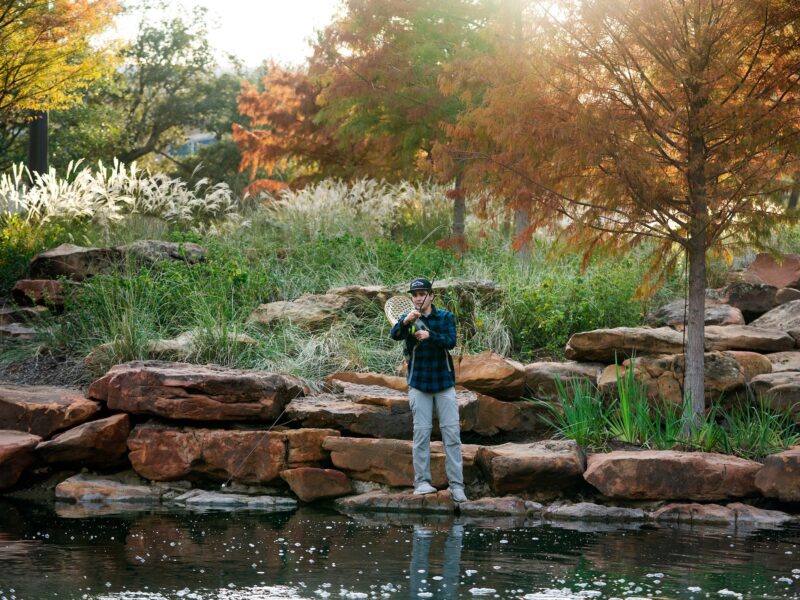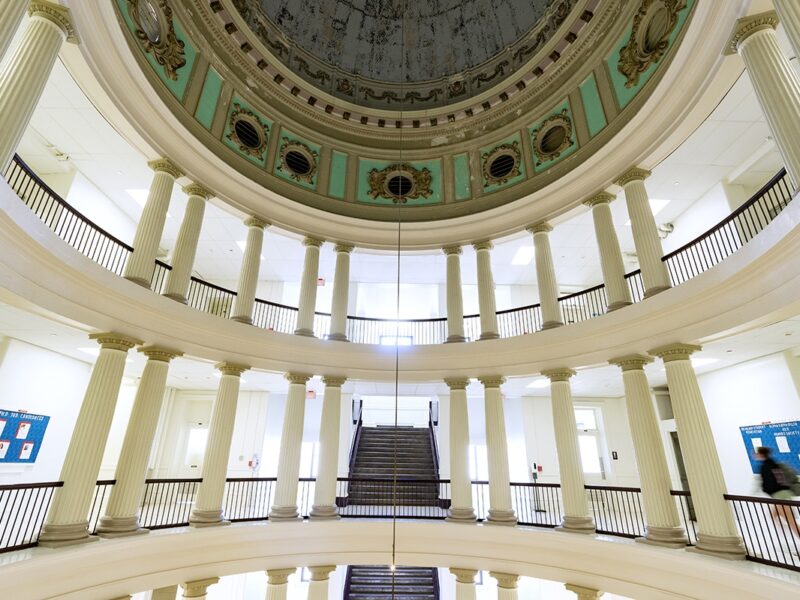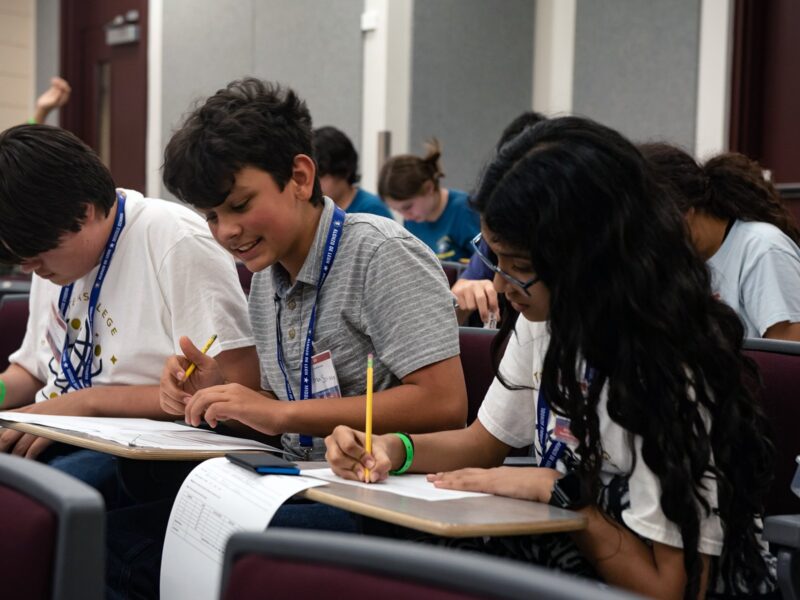A Study Abroad Field Trip Brings Clean Water To Haiti
As news of the earthquake that devastated Haiti grabbed the world’s attention, a group of Texas A&M University undergraduate and graduate students received an urgent request for help.
They were ready.
The group had been meeting every Friday with civil engineering professor Bryan Boulanger and an interdisciplinary team of faculty and staff (including Stephen Carpenter, Oscar Munoz and Cory Arcak) to research and create appropriate technology-based ceramic water filters – a low-tech solution to the local and global potable water crisis. The team, known as the Texas A&M Water Project, had been troubleshooting techniques with the support of FilterPure, a nonprofit organization based out of the Dominican Republic and Haiti committed to providing safe drinking water to at-risk populations.
“FilterPure needed trained people right away,” says Boulanger. “Haiti’s entire infrastructure, including its existing water supply, had been destroyed, and we were in a position to send people to help. We needed to mobilize quickly and a study-abroad field trip was the best way to accomplish this.”
Boulanger says that the Study Abroad Programs Office did “a wonderful job” getting all the passports, insurance and other paperwork processed quickly. He credits Amy Schultze, a study-abroad adviser, with getting him and five students “two from the College of Education, two from civil engineering and one from industrial and systems engineering “on the ground in three weeks.
“Our trip to the Dominican Republic wouldn’t have been possible without the support of Study Abroad and the departments of civil engineering, industrial and systems engineering and teaching, learning and culture,” says Boulanger. “It’s that kind of across the board support that demonstrates how committed Texas A&M is to service around the globe.”
The group’s intention was to go to Haiti itself, Boulanger explains, but the U.S. Department of State issued a travel advisory that prevented taking students into Haiti. Instead, the group worked across the border in a FilterPure facility in the Dominican Republic to help create 500 filters and approximately 3,000 fired mud bricks for a kiln that is now operational in Haiti. FilterPure then trucked the material across the border into Haiti.
“This was an amazing opportunity for our students to see their engineering work put into practice and have immediate utility. It was experiential learning at its best,” Boulanger says.
The students were immersed in another culture day and night. They stayed with local families in the small town of Higuerito, taking bucket showers and sleeping under mosquito netting. They built strong relationships with the family members and with the local community. At the filter production facility, they worked side-by-side with workers from other cultures and backgrounds.
Boulanger adds, “They discovered that when you get your hands dirty together, you really bond quickly with people.”
“We had a multi-level experience,” explains Ishan Desai, a doctoral student in civil engineering from Kolkata, India. “At the physical level, we had an opportunity to travel halfway around the globe to help an at-risk population. At the mental level, we used our technical and problem-solving abilities to produce economic and effective water filters. And at the spiritual level, it wasn’t about ‘me,’ it was about being part of the global community.”
“The opportunity to do a study abroad field trip had so many benefits besides the obvious one of helping the people of Haiti,” Boulanger states. “It helped our students grow, allowed them to experience different cultures and definitely built character and confidence. Also, every aspect of our experience involved high-impact learning.”
The students needed to practice teamwork and to trust in other team members in order to get the filters made, he adds. For example, creating filters and kiln bricks involves a multistep process. Team members needed to cooperate and coordinate with each other to determine what to do next.
There was also the issue of how to get the bricks from one part of the island to the other, and problems associated with border crossings. The ability to solve logistical problems, as well as to develop a better understanding of the reasoning behind the design process of the filters, helped when the team returned to Texas A&M.
“They were able to help plan the layout of our new facilities in Laredo based on what they learned in the Dominican Republic,” Boulanger notes.
The Texas A&M Water Project has been granted space to build a point-of-use ceramic water filter production and education facility in Laredo for residents of the Texas colonias. Texas has an estimated 400,000-500,000 people without access to sanitation or clean drinking water in their homes, most notably in South Texas.
“Not only does this project provide a critical service for people in the state and beyond, but our study abroad trip to the Dominican Republic has given our students the global perspective needed to work with the diverse communities of Texas,” Boulanger adds.
As Perpetua Mbachu, a senior allied health major from Austin, says, “Being able to work with the Texas A&M Water Project was an opportunity of a lifetime. I had the chance to work in an unfamiliar setting, to interact with people of a different culture and to learn the value of breaking barriers to communicate ideas and share perspectives. This experience showed me how a small group of people with a common mission can begin to shape the world.”
Media contact: tamunews@tamu.edu.
